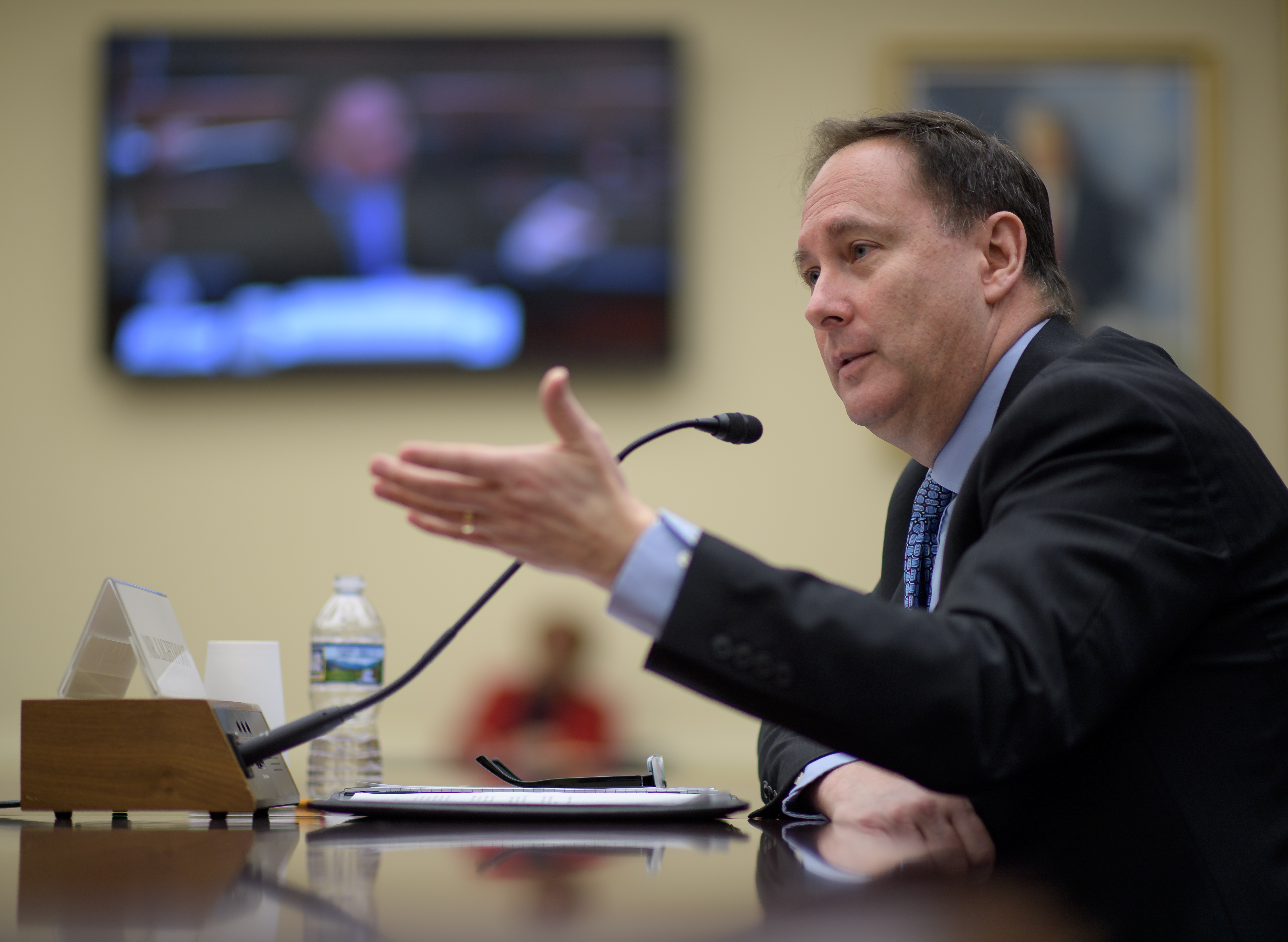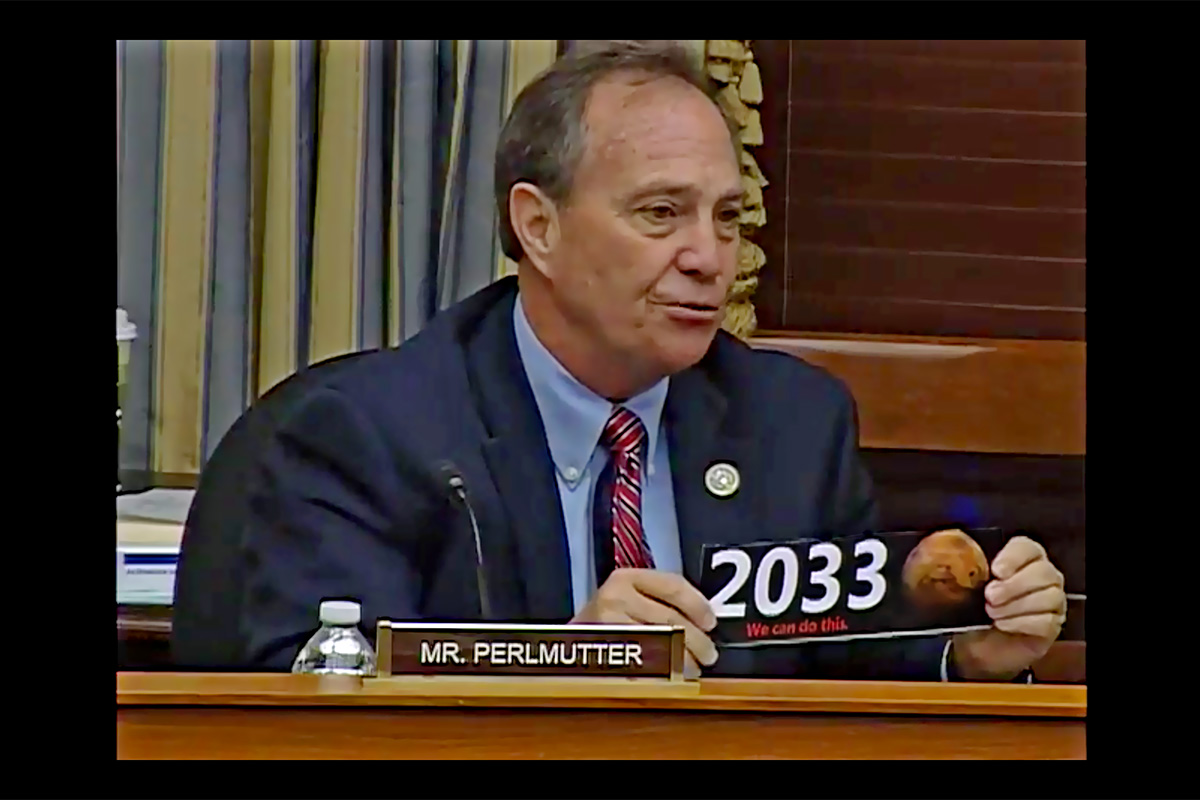Cutting NASA Science Missions 'Can Set a Dangerous Precedent,' Congressman Warns

While the Trump administration's budget proposal for fiscal year 2019 supports the long-term goal of sending humans to the moon and Mars, some members of Congress fear that the proposed shift for NASA's priorities could leave the agency's science missions in the dust.
During a hearing on Capitol Hill today (March 7), several members of the House Space Subcommittee expressed concern over the budget proposal's request to cancel six upcoming missions from NASA's Astrophysics and Earth Science programs.
The biggest concern was the proposed cancellation of the next "flagship" astrophysics mission, the Wide Field Infrared Survey Telescope (WFIRST), which was selected as a top priority in the last decadal survey. This report, issued by the National Research Council, is based on input from the science community and provides a road map for NASA's Science Mission Directorate, which includes the Astrophysics Division and Earth Science Division. [In Photos: President Trump Aims for the Moon with Space Policy]
"Not looking at this scientific-based prioritization and moving away from that can set a dangerous precedent," said Rep. Ami Bera, D-Calif. "We don't want to get into a situation where every four years, priorities are changing. That makes it very difficult for [NASA] to focus on some of these longer-term projects."
Rep. Ed Perlmutter, D-Colo., who proclaimed his love for science fiction during his opening remarks, compared NASA to the film "Back to the Future" and even quoted Yoda from the "Star Wars" films while making a similar argument. "Some of what we're doing here reminds me of 'Back to the Future' — a real effort on exploration [and] a real desire to do that," he said. "I want to get our astronauts to Mars by 2033," he added, holding up a bumper sticker in support of his cause. "Do or do not. There is no try."

Despite his excitement about human exploration, Perlmutter agreed that a human mission to Mars should not hamper NASA's science activities. "There is an emphasis on exploration," he said, "but it seems to be at the expense of a lot of the other missions of NASA."
Get the Space.com Newsletter
Breaking space news, the latest updates on rocket launches, skywatching events and more!
NASA Acting Administrator Robert Lightfoot, the only witness at the hearing, disagreed. "We've aligned that technology budget with the exploration initiatives, and that particular part of the budget will now focus on what we call our 'long poles' to getting to Mars — things like in-space propulsion, radiation safety, advanced life support that we need to actually take crews to Mars … so I think we still have a very balanced portfolio going forward."
As for WFIRST, Lightfoot noted that other future missions could make up for the missing data. For now, NASA will have to count on the James Webb Space Telescope and the Transiting Exoplanet Survey Satellite to fulfill the agency's astrophysics needs.
"None of us is going to argue that exploration is not important," Bera said, "but we also want to make sure we don't lose sight of the space science side, the space technology, the aeronautics and education."
Email Hanneke Weitering at hweitering@space.com or follow her @hannekescience. Follow us @Spacedotcom, Facebook and Google+. Original article on Space.com.
Join our Space Forums to keep talking space on the latest missions, night sky and more! And if you have a news tip, correction or comment, let us know at: community@space.com.

Hanneke Weitering is a multimedia journalist in the Pacific Northwest reporting on the future of aviation at FutureFlight.aero and Aviation International News and was previously the Editor for Spaceflight and Astronomy news here at Space.com. As an editor with over 10 years of experience in science journalism she has previously written for Scholastic Classroom Magazines, MedPage Today and The Joint Institute for Computational Sciences at Oak Ridge National Laboratory. After studying physics at the University of Tennessee in her hometown of Knoxville, she earned her graduate degree in Science, Health and Environmental Reporting (SHERP) from New York University. Hanneke joined the Space.com team in 2016 as a staff writer and producer, covering topics including spaceflight and astronomy. She currently lives in Seattle, home of the Space Needle, with her cat and two snakes. In her spare time, Hanneke enjoys exploring the Rocky Mountains, basking in nature and looking for dark skies to gaze at the cosmos.









